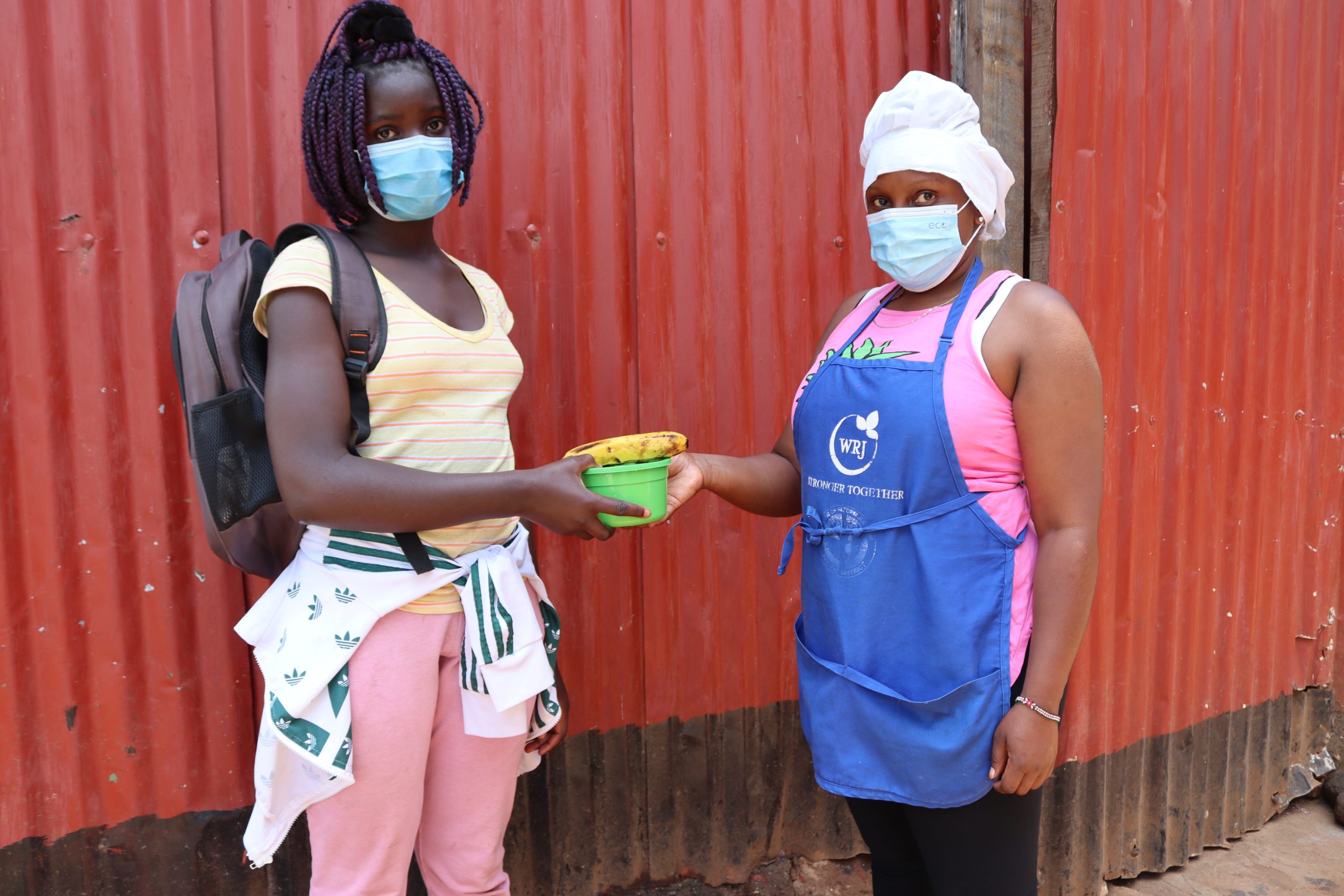While our primary purpose is to provide education, we know that nutrition, good health, and a safe living environment are essential to learning. To maximize student success, we support the health and well-being of our students by providing regular meals and medical care, in addition, to support and training programs for Sexual and Reproductive Health, Drug Awareness and Abuse, and Mental Health.
Nutrition
Since the inception of our program, we have provided our students with a nutritious breakfast and lunch at school. Through these programs, each elementary-age child receives at least two meals daily during the school week. We offer meals directly to our students in Nelson Mandela Elementary and contract caterers to cook for our students at our other elementary schools. High school students are in boarding school and receive three meals a day.
 We provide lunch each Saturday during the Saturday Program and both breakfast and lunch during school holidays and breaks. Our caterers ensure students get a balanced diet by cooking a variety of meals for the students, including “Chapati,” a flatbread that is a favorite of Kenyan children.
We provide lunch each Saturday during the Saturday Program and both breakfast and lunch during school holidays and breaks. Our caterers ensure students get a balanced diet by cooking a variety of meals for the students, including “Chapati,” a flatbread that is a favorite of Kenyan children.
Case managers often identify situations where families need food aid during home or school visits. Families in a particularly dire situation may request family food aid, and we provide basic foods to address the temporary problem.
Health Care
 During the Saturday Program, our contracted nurse performs routine exams on a rotating basis and sees students who are ill. If a student becomes ill, their parent or guardian visits the Ngong Road Children’s Foundation administrative office for a voucher to visit a clinic for treatment.
During the Saturday Program, our contracted nurse performs routine exams on a rotating basis and sees students who are ill. If a student becomes ill, their parent or guardian visits the Ngong Road Children’s Foundation administrative office for a voucher to visit a clinic for treatment.
Clean water and sanitation facilities are often unsafe in parts of Kenya including Nairobi. Therefore, an essential preventative treatment is deworming medications which our Saturday Program nurse regularly administers in addition to weekly multivitamins. We also provide basic dental and vision care.
Drug and Substance Abuse Awareness and Mental Health
We serve some of the most vulnerable children on the planet. Life in the slums can be unimaginable so our students must receive the best support to ensure they can transform their lives.
Drug use is a reality for many living in the slums. Given the prevalence of crime, gang violence, mental illness, and peer pressure, we know our students’ success can be derailed by drug usage. That’s why we educate our students about drugs and their impact on one’s life. Our program creates awareness of drugs and substance abuse and information on the types of drugs abused and empowers students to adopt healthy behaviors that prevent abuse and the associated risks.
It’s also vital that we educate our students about developing and maintaining good mental health. To transform the lives of students, we want them to be able to identify any mental health concerns and know what to do if problems arise so that they can seek help.
Sexual and Reproductive Health Program.
Many of our students have witnessed family members suffer or die. The Kenyan education sector largely promotes an abstinence-only curriculum, failing to emphasize important topics of contraception, and sexually transmitted diseases. The knowledge gap perpetuates common myths such as that contraceptives can cause infertility.
Recognizing that many young people are sexually active and some are forced or coerced into sexual activity, we want to ensure that adolescents in our program have the resources and knowledge to make informed decisions. Based on student focus groups and extensive research on best practices in Sexual and Reproductive Health (SRH) education, we worked with Planned Parenthood Global and Tulane University to develop a Youth Peer Provider (YPP) SRH Program.
A dozen post-secondary students along with the staff are trained to provide accurate SRH information and receive coaching on how to share this knowledge with their peers. They also receive condoms and vouchers for access to contraception, emergency contraception, and STI testing which they disseminate.